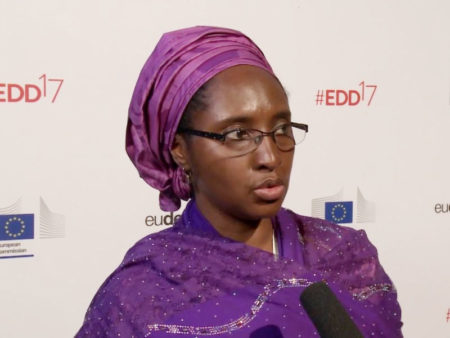
Nigeria supports a Common External Tariff (CET) and Customs Union within the Economic Community of West African States (ECOWAS), the Minister of Finance, Mrs. Zainab Ahmed, has assured.
She told participants at the 4th ECOWAS Finance Ministers’ Meeting in Abuja on Friday that the nation was working towards liberalisation, industrialisation and economic integration in the sub-region.
The theme of the conference was “Information Exchange and Cooperation Amongst Customs Administrations as a Concerted Response to Obstacles to the Free Movement of Goods, Security Challenges and the Resurgence of Illicit Trafficking.”
A statement by the Special Adviser to the Minister of Finance (Media and Communications), Paul Abechi, quoted her as saying that the move to establish the ECOWAS Customs Union remained a pertinent issue that should be vigorously pursued in order to facilitate free trade and industrialisation towards shared prosperity for everyone in ECOWAS.
She said, “Nigeria believes fervently that ECOWAS regional policies such as the CET, the Customs Union and other fiscal policies should aim seriously at achieving economic growth and industrialization for member states, while reducing import dependency.
“The economies of scale that result from successful integration, should serve as catalysts for economic development ’of the region. Nigeria therefore believes West Africa, while desiring integration into the global economy, should diversify its economy through manufacturing, processing of primary products and other forms of economic modernization.
“Nigeria undoubtedly supports a regional common tariff and a customs union for ECOWAS as major steps toward the achievement of the objective for which the ECOWAS itself was established.
“I wish to assure you of Nigeria’s commitment to a sustainable, functional regional economic integration project that will, in the long run, facilitate economic growth and social prosperity for the peoples of West Africa. I also assure of Nigeria’s readiness to support the outcomes of today’s meeting.
“However, like every developing economy, Nigeria’s vision to industrialize is very strong. Accordingly, we believe ECOWAS CET should be designed to promote regional industrialization in a manner that on the long term reduces dependence on imports. We will continue to work within ECOWAS to achieve these laudable objectives.”
The Minister also described the issues for deliberation at the meeting as opportunity to share experiences in their countries and how they could be tackled as far as long the CET implementation is concerned.
She said, “The issues to be considered here are quite topical and offer us, the opportunity to share country experiences on the CET implementation and to peer review the status of our implementation of the Customs Union with a view towards its consolidation.
“These issues if appropriately addressed will help to improve the revenue and public health profiles of Member States through the efficient tracking/taxation of tobacco products, eliminate double taxation illicit financial transactions, and institute strategies for development oriented tax treaties between Member States of ECOWAS and between us and other countries.
“In particular, we hold the belief that the establishment of a Track and Trace System for Manufactured and imported Tobacco Products represents ECOWAS’ genuine desire to enthrone best practices in tobacco taxation and control the public health hazards of these products.”
She also expressed optimism that the draft regulations on an ECOWAS Tax Treaty Model and Mutual Assistance in Tax Collection can potentially ease tax treaties negotiations among the Member States, eliminate tax evasion/avoidance within the region, encourage tax audit and exchange of tax information as well as enhance regional integration.
“As a matter of fact, these regulations will also assist to deepen the integration of the region with the global strategies to improve public revenue through the elimination of tax malpractices,” the Minister added.
The conference was to deliberate the Draft Supplementary Act on Community Rules of Origin and Procedures applicable to goods originating in the ECOWAS; the Draft Regulation on the Harmonisation of Customs Duty Reliefs; the Draft Directive on Mutual Administrative Assistance in Tax Matters; the Draft Regulations on the Change of Category of Products in the ECOWAS CET; and the Draft Directive on the System of Track and Trace and the Verification of the Taxation of Tobacco Products Manufactured or Imported in the Member States of the Community.